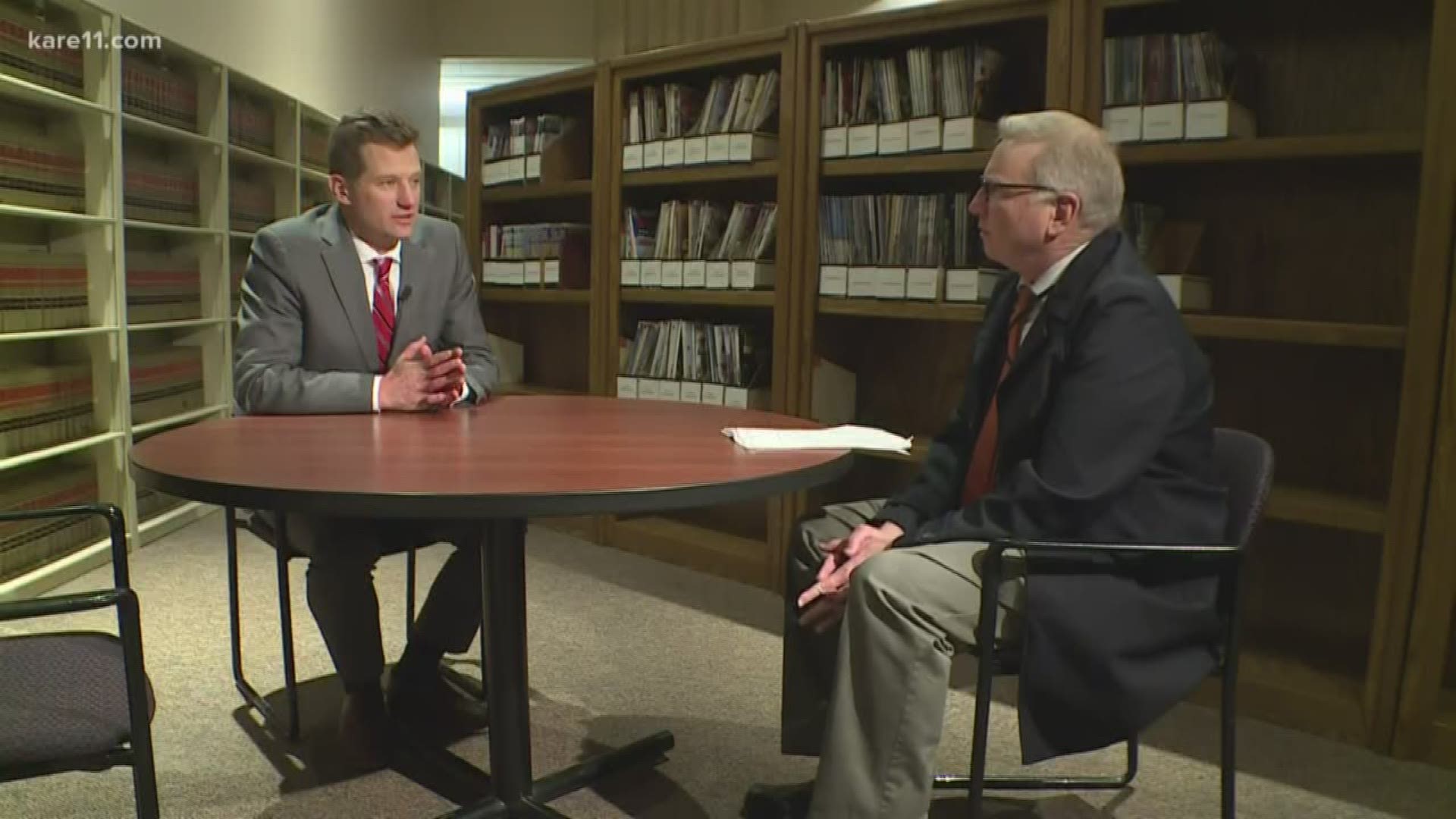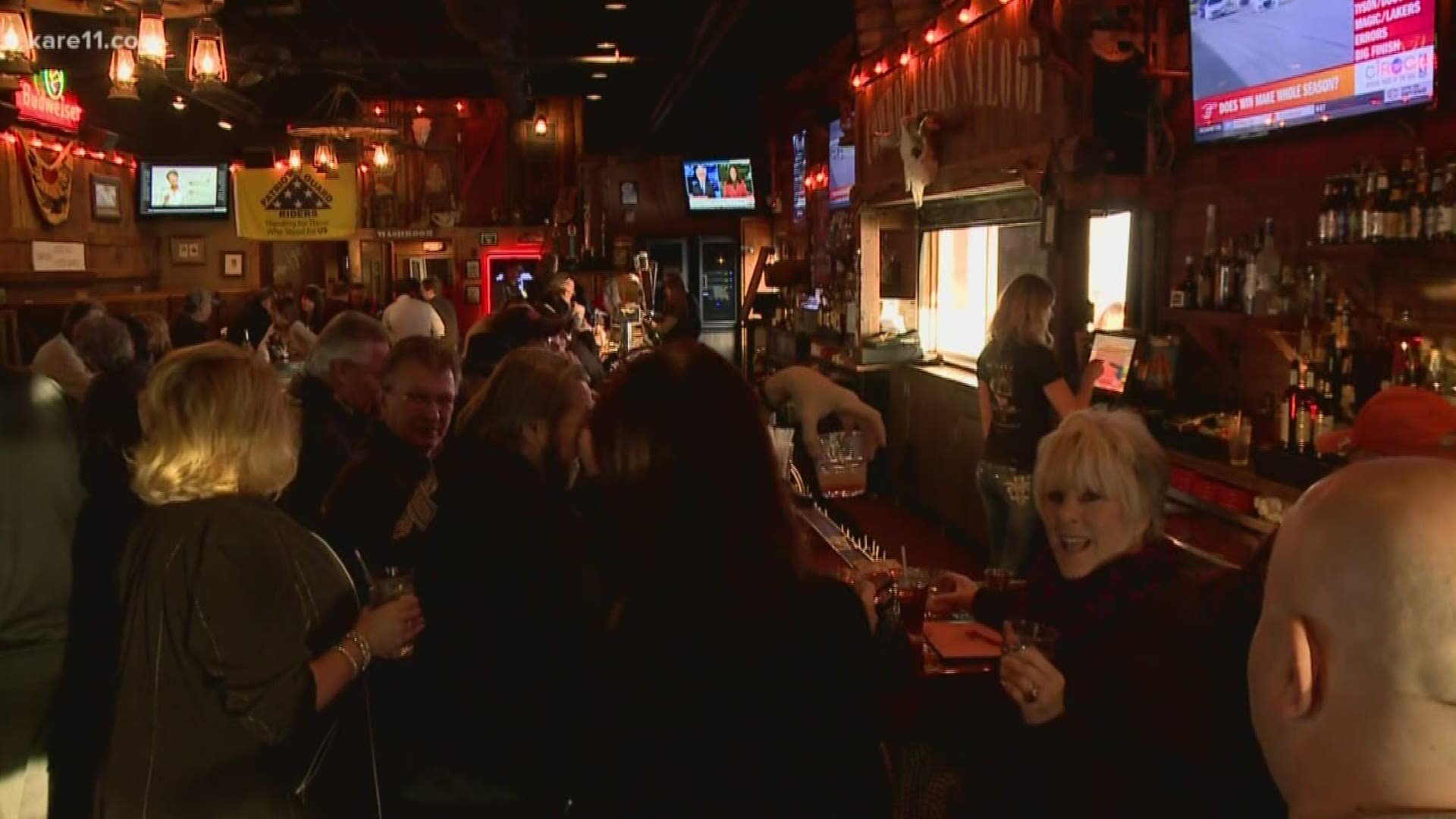ST PAUL, Minn. — Gov. Tim Walz knew with one executive order he'd create a wave of new applications for unemployment, so he issued a second order to help handle that influx of newly jobless Minnesotans.
And Monday's executive order - temporarily closing bars, restaurants and many other public accommodations - was felt immediately at the Department of Employment and Economic Development, or DEED.
The agency went from 40 applications an hour last week to 2,000 applications per hour on Tuesday, according to DEED Commissioner Steve Grove. That's understandable, considering 220,000 people work in Minnesota's restaurant, bar and hospitality industry either full time or part time.
"The team’s processing these applications. We’re working extra hours. We’re going to working on the weekends, going to find any way we can to make this quick, and get people benefits quickly and make the process as seamless as possible," Commissioner Grove told KARE.
At the same time Gov. Walz closed bars and restaurants, he used another order to suspend the state's unemployment insurance laws to make it easier for people to apply during the COVID-19 crisis.
"Some of those people will have access to paid leave options, to sick leave options, and we encourage workers to take advantage of those benefits because they pay the full amount of your wage usually," Steve Grove, the Commissioner of Employment and Economic Development, told KARE.
"But many won’t have access to those kinds of benefits and so the state’s unemployment program is an important lever for folks to consider.
Apply for benefits online
Grove stressed the best way to apply is online at UIMN.org because the call centers are mainly designed for people who don't have computers or don't read English.
"Go to UIMN.org to apply for the program," Grove said.
"We really encourage people to do that. Because phone calls are NOT going to make you happy. You’re going to be on hold for way more than you need to. You simply don’t need to call. You can get everything you need online."
Minnesota's unemployment insurance program provides up to 26 weeks of benefits, with checks equal to 50% of your normal paycheck up to $740 per week. That's generous compared to most states.
It normally takes one to two weeks for the first check to arrive, but Grove is asking for people to be patient because it's the largest single influx of applications in the history of the program.
The state's unemployment insurance fund, paid for with taxes on employers, is currently at $1.5 billion. States that exhaust their funds can get a zero-interest loan from the federal government.
The executive order makes the applications easier to process in some ways because it clearly spells out what types of circumstances qualify someone for unemployment.
Normal rules waived for crisis
Normally you've got to go at least one week without pay in order to qualify for unemployment insurance, but the governor's order waives that rule.
And, under regular circumstances, you've got to be looking for work in order to collect those checks and make yourself available if the state calls you with a job opening. Those expectations are also out the window for the time being.
"You can’t really actively seek for work right now given the conditions we’re in, and even being available is up for debate," Grove explained.
"Let’s say you’re home taking care of your kids because schools are closed, or you’re away from work because a loved one has been hit by this crisis."
There's also a system to help workers who aren't laid off but have their hours cut back substantially. Employers can apply to the state's Shared Work program to get partial unemployment to augment workers' pay.
"We’re trying to incentivize employers to do the right think if they can and continue to pay employees something and keep them on their payroll to some extent where that’s possible."
Easing rules for employers
The governor's executive order also bars the state from increasing unemployment insurance taxes on businesses just because they lay people off, which is normally the case.
"Every employer pays a different unemployment tax rate based on their track record for holding onto and/or letting go employees," Grove explained.
"We try to reward folks who don’t lay off workers, so they will pay a lower rate usually. But we're in the middle of an unprecedented situation, which is a global pandemic. We don’t want any employer to be penalized for that."
KARE 11’s coverage of the coronavirus is rooted in Facts, not Fear. Visit kare11.com/coronavirus for comprehensive coverage, find out what you need to know about the Midwest specifically, learn more about the symptoms, and keep tabs on the cases around the world here. Have a question? Text it to us at 763-797-7215. And get the latest coronavirus updates sent right to your inbox every morning. Subscribe to the KARE 11 Sunrise newsletter here.


